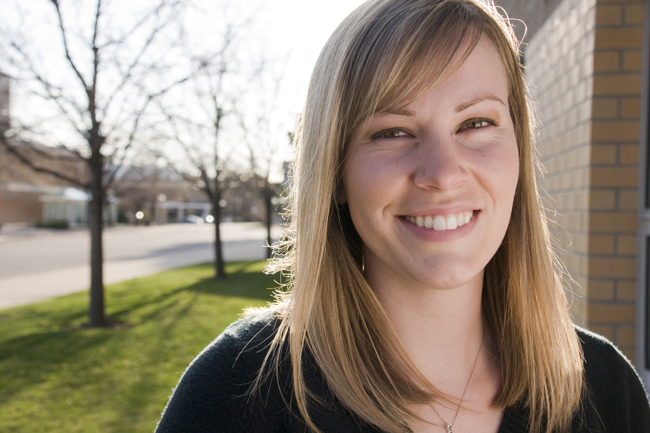Treating child behavior issues early is the key
Psychology doctoral student Jessica Malmberg is researching how to prevent treatable behavior from becoming clinically diagnosed by dealing directly with the parents of the child at an early age as a thesis project.
“We spend time with the parents,” Malmberg said. “You can’t prevent problems if you don’t work with the family. Historically, psychologists were spending time with children and that has proved ineffective in some cases.”
Malmberg’s thesis project is a prevention research program that helps identify children between the ages of 18 and 30 months who are acting out in slight to extreme ways by having tantrums and being aggressive.
Malmberg said she is looking for parents who feel overwhelmed by their child’s behavior, much like those referred to as the usual terrible twos.
“We are looking for the borderline kids, that’s who we really want,” she said.
Once she finds the parents, the child is screened for free. Atypical actions for an 18- to 30-month-old may include physical and verbal aggression, excessive tantrums and frequent displays of noncompliance, Malmberg said.
After the children are screened and if they meet the criteria, parents are set up for two sessions of preventative behavior training. While this service would typically cost $200 or more, Malmburg said she offers it free of charge.
Doctors from the Budge Pediatric Clinic in Logan have joined Malmberg and Clint Field of their psychology department on their quest to help parents help their children.
Field said more and more kids are developing behavior problems because there was no intervention at a young age when signs were apparent.
The need for these early intervention programs is real, Field said.
“It’s the number one reason children are referred to mental health clinics in the country, and the number one concern reported to pediatricians by parents,” Field said. “Often, the parents know something is wrong, but they don’t know how to handle certain types of behavior.”
Field, Malmberg’s professor, said sometimes parents make mistakes because no type of certificate is required for parenthood.
“Take driving for instance,” he said. “You learn how to drive and get your license, but there is no learning and licensing process for parenting. We certainly don’t believe that there should be, but there is some basic and sound advice that could benefit all parents.”
Dealing with misbehaving children can be more than parents are equipped for. In the training, Malmberg and her team work to teach parents what these struggling toddlers need.
“We emphasize the use of ‘time-in’ that makes ‘time-out’ effective,” Malmberg said. “Through regular, planned and positive interactions with their parents, children become more responsive to time-out.”
“It’s all about contrast,” she said. “We encourage them to spend 10 minutes during the day where the children do what they want, and just hang out with the parents. No instruction, but rather where you praise and imitate them.”
Other positive reinforcement strategies she teaches the parents to implement include catching the child doing good things, giving five positives for every negative and using a different approach to time-outs.
Other students at USU agree with Malmberg in her idea of catching the problem early.
“I definitely think the age of 1 1/2 to 2 1/2 is appropriate to see the emergent behaviors in children,” said Caitie Thomas, junior in early childhood education. “I’ve never worked with a child that I thought was beyond intervention.”
She said, however, as children get older it becomes more difficult to correct their behavior.
Malmberg said she wants to reach out to the parents of these children, and is offering free advice and counseling through her project. She said she believes the time is now if their child is young and has shown characteristics of excessive anger or defiance.
“Once they reach adolescence, the chances that their behavior can be altered are so much smaller,” she said.
She said research shows the problematic kids often end up going to juvenile detention and prison, after committing crimes as adults.
“I believe that if we can prevent at such a young age, we can really help the world,” she said. “I would never say it’s too late to help a child or teen, but I am such an advocate of prevention psychology.”
Malmberg said parents don’t have to be scared if their 2 year old is acting out, but a free screening can only help.
“It’s normal for children of this age to throw tantrums, but we want to help those that are maybe a little excessive,” Malmberg said.
Malmberg is still looking for parents with children to take part in her program. She can be reached at j.malmberg@aggiemail.usu.edu.
–truffle40@gmail.com

